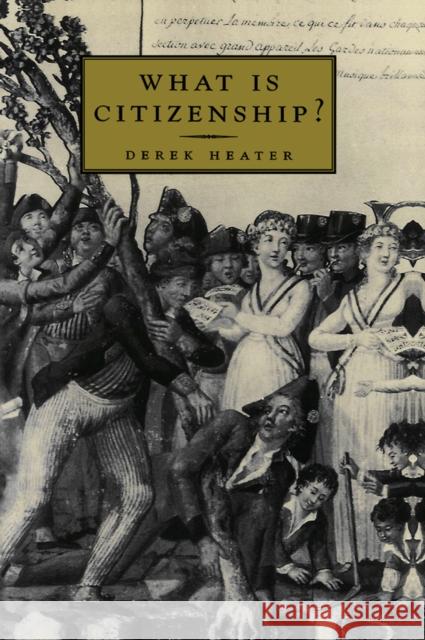What Is Citizenship? » książka



(netto: 83,25 VAT: 5%)
Najniższa cena z 30 dni: 86,52
ok. 30 dni roboczych.
Darmowa dostawa!
Structured analytically, the book introduces the reader to all the facets of citizenship.
"[This] book fundamentally transforms our understanding of citizenship. It should become required reading in any course in political theory, philosophy, history, international relations and comparative politics that considers this key concept and its practical political and policy implications." Joel Krieger, Wellesley College, USA
"This is an excellent book. It would not be possible for any good university course dealing with citizenship to omit this book from those items on the reading list marked ′essential′...The sharpness of thought shown in this book will make it easier to avoid the pitfalls and encourage people to reach for something that is coherent and meaningful...Superlatives are overused, but this book is a classic." Jan Davies, University of York
Preface vii
Acknowledgement viii
Introduction 1
1 The Liberal Tradition 4
Origins Citizenship and capitalism Marshall′s analysis Marshall: influence and judgements Social citizenship and neo–liberalism Two additional elements Citizenship rights at the turn of the century The problem of rights in practice
2 The Civic Republican Tradition 44
Major thinkers Purpose of citizenship Style of citizenship Qualities of citizenship Role of the citizen Forming the citizen Revival and arguments Adaptations for today
3 Who Are Citizens? 80
Legal definitions Equality or elitism? Feminist perspectives Citizenship as nationality: origins Citizenship and nationality synthesized National citizens: made or born Multiculturalism
4 Multiple Citizenship 115
The idea of multiple citizenship Parallel citizenships Federal constitutions The European Union Sub–state citizenships The idea of cosmopolis World citizenship identity and morality World law and the citizen World governance and the citizen Pros and cons
5 Problems and Resolutions 155
Inherent problems and tensions Current issues The roles of education Connections and essence
References 181
Select Reading List 187
Index 189
Derek Heater is Founder Chairman of the Politics Association and the author of several books on political ideas.
Political theorists have been writing about citizenship for over two thousand years, and it has been practised for even longer. No wonder, therefore, that the concept and status of citizenship have accumulated a complex variety of interpretations. However, no age before ours has had such a widespread and pressing need to understand these accounts. During the last decade of the twentieth century, although scholars have provided a rich flow of commentary on the subject, no single work offers an analysis that is thorough, succinct, and couched in an accessible style.
What is Citizenship? fills this gap.
Structured analytically, the book introduces the reader to all the facets of citizenship. These are illustrated by reference both to a broad range of theoretical writing from Aristotle to the present day, and to the actual provisions of the status in a number of countries. The volume explores, in addition, a diverse range of pressing issues, including: the differences between the civic republican and liberal styles of citizenship; the origins and current relationship between citizenship and nationality and the issue of multiculturalism; the problems experienced by "second–class" citizens; the concept of "multiple citizenship" including the status of EU citizenship; the changing definition of "world citizenship"; and the role of education in creating citizens.
This book provides an invaluable introduction to this concept for students, teachers, and the general reader interested in the debates about citizenship today.
1997-2026 DolnySlask.com Agencja Internetowa
KrainaKsiazek.PL - Księgarnia Internetowa









